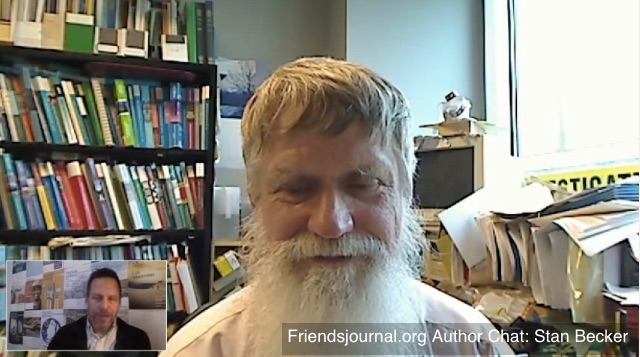
Contemplating words to share about a decision not to have biological children is somewhat awkward from where I am sitting now in Niamey, Niger. In this country, women have an average of 7.6 births each, according to a 2012 demographic survey. Colleagues here and the culture generally express sorrow for childless persons. I have worked in the population field for the last 40 years and am presently helping the Niger National Statistics Institute undertake a survey on contraceptive use.
In the United States, we presume that childbearing (or not) is a very personal decision made by couples. But this is not really the case: we are social beings, and our reproductive intentions are clearly influenced by the larger society. (The two-child family has been the norm in the United States since the 1970s, thanks at least in part to the Zero Population Growth movement.) Our intentions are also influenced by our immediate family. (Often our parents let us know directly or indirectly that they would like to be grandparents.) And they are influenced by our economic environment. (We are the developed country with the least paid maternity leave, and prospective parents probably need to consider the number of children in relation to the amount of money needed for college tuition for each, as well as all the other costs of child-rearing!)
The childbearing decisions of couples all over the world have led to the very rapid increase in numbers of our own species: from 1.6 billion in 1900 to 7.3 billion today. Other species on the planet continue to go extinct at a very rapid pace, and nearly all species loss is due directly or indirectly to human numbers and activity. Clearly species loss, destruction of ecosystems, exhaustion of natural resources, and global warming have other important determinants (e.g. relative standards of living of national populations), but population numbers are a multiplying factor in any case. Although fertility has come down throughout most of the world in recent decades, the population problem is far from solved: we still add 75 to 80 million more persons to the planet each year.
From 1990 to 2001, I traveled under a concern about rapid population growth, visiting nearly half the monthly meetings in Baltimore Yearly Meeting and speaking at several other yearly meeting sessions. As part of these labors, some Friends meetings approved minutes on population concerns. Chesapeake Quarterly Meeting approved a minute in 1992 which includes the text: “Meetings should make known the availability of clearness committees for couples who are considering additions to their family and want support in making a responsible decision.” While I have been on clearness committees for couples considering adoption, I have yet to hear of any Friendly couples who have asked for a clearness committee regarding whether to have or not have a child.
When my wife, Fannie, and I had our clearness committee for marriage (Brussels Meeting in Belgium), we were asked about having children, and we said that we had not yet decided. Fannie has a daughter, Claudia, from her first marriage whom we would raise together, so she felt she would be happy either way. My sense was that the world was overpopulated already, so I could forgo having biological children. In support of this philosophy, in the New Testament (Matthew 19:11) we learn that Jesus recommends childlessness (chastity actually) for those who feel called to be of service, and some of our sister religious groups have held up that spiritual path. We also know that George Fox was childless.
In seeking clearness, we talked with a Quaker couple who had decided to remain childless. Among other things they told us of a ritual that they celebrated together each year. While parents help in celebrations of their children’s birthdays, this couple recounted how they celebrate “vasectomy day” each year.
Forgoing biological children does generally free one to be of more service in the larger community. In particular, I have been able to assist international population projects in many countries over the years. This would have been difficult to do and unfair to do with small children at home.
When one dies, in a sense one lives on in one’s children (genetically if there are biological children and socially in any case). I am a professor in a university founded by a childless Friend. Johns Hopkins never married because the Baltimore (Md.) Meeting refused to marry Johns and Elizabeth, who was his first cousin. Thus he left a large part of his wealth to found Johns Hopkins University. In a parallel but much smaller manner, I feel I will live on in the lives of students whom I have taught over the last three decades. Some of them are in leadership positions around the United States and the world, and it makes me proud. I believe this is comparable to what parents feel when their children do well.
Do I have regrets for not having biological children? Yes, one minor one. As a teenager, I was an avid genealogist, so yes, I do regret that there is no biological child to receive these materials plus mementos from my own childhood and from my parents. But hopefully a niece, nephew, or cousin will eventually be interested. And of course having someone to receive genealogical materials is definitely not a reason to have a child!
The U.S. population is growing by about 3 million persons per year, and only about half of that is due to immigration. In fact, the United States is the most rapidly growing of all developed countries. It has been reported that nearly half of the 6.6 million pregnancies in the United States each year are unintended. About 20 percent are unwanted, and some of those end in abortions; nearly 30 percent are mistimed. It is my observation that Friendly couples do much better. As Friends we can hold up and try to practice the spiritual ideal: that every child born will represent “a calling” on the part of the parents. Might consideration of this ideal by couples be a place where a clearness committee can be of help?
To halt population growth worldwide, we need to reduce levels of fertility below two children per woman. Even if every couple from now on had only two children, population would continue to grow for about 70 years due to population momentum. This is mostly the result of populations having a large percentage of young due to previous fertility levels greater than two children per woman. In fact, if replacement fertility were achieved immediately, world population size would level off at about 9.5 billion, 30 percent above what it is today.
Also, let us not assume that every married couple will make good parents and that having two children is better than having only one biological child. Couples can adopt if they want to raise more children. The book Maybe One by Bill McKibben debunks the negative myths about only children. Let us help couples reach clearness on childbearing (or not) and the number of children.
Friends are very active in environmental concerns now. But it is probably true that for most American Friends, the one single thing that can most reduce our ecological footprint on the planet is to have one fewer child or, for those of us who are older and have had children, to encourage our children and grandchildren to have only one or no child for the sake of the planet. We need to spread the good idea of the one-child family so future generations can have a greater chance of living in an “Earth Restored.” (For further reflections, see the pamphlet “Seeking Clearness on Childbearing in a Crowded World” produced by Quaker Earthcare Witness.)
Now our daughter Claudia has married and has two beautiful children, so (especially since their father’s parents have both died) Fannie is “Nona” (Grandmother), and I am “Grandpa” to them. Yes, childrearing can be joyous, but let it be a calling!
Web Author Chat:




Comments on Friendsjournal.org may be used in the Forum of the print magazine and may be edited for length and clarity.